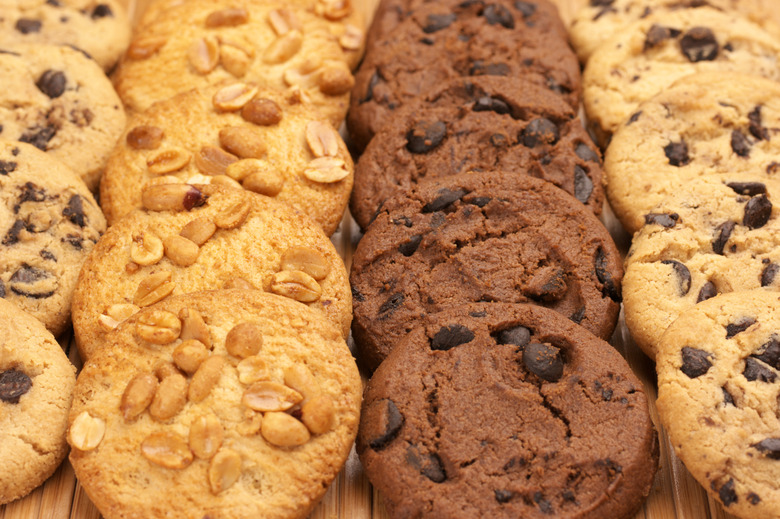101 Best Cookie Recipes
What is it about cookies that make them so irresistible?
Is it the sweetness? Is it the textural sensation of the chew — soft or crispy or better yet both at once? It could be, perhaps, that they are portable and easy to eat; no fork required. Or maybe we gravitate towards cookies because they are cute, small, and single-serving, so we can trick our brains into thinking that it's ok to have one or two more. Beyond the taste, cookies are great because they are pretty easy to make: mix, drop, bake, enjoy. There are few tricks, however, that can ensure your cookies will come out perfect, every time.
For the 101 Best Cookie Recipes for 2017, click here.
When mixing cookies, ingredient order is everything. The butter and sugar first need to be creamed together — whipped on a medium speed until pale, light, and fluffy — before the eggs are added. This incorporates air into the mix (thus contributing to the volume to the cookie) and makes for a softer, more tender result. Room-temperature butter is the most efficient at trapping those air molecules; if the butter is too cold, no air gets trapped andyou get a flat, hard cookie. Conversely, if you use butter that is too warm, the cookies will indeed be soft but won't enough structure to hold the air.
Next come the eggs — if they're called for. Eggs are, surprisingly, the most important ingredient in much cookie baking — beating out sugar and even butter (gasp!), in my opinion. They are the binder and play a significant role in the structure and chew of the cookie.
When mixing the eggs into the batter, use room-temperature eggs. This may take some forethought, but the warmer temperature does help the eggs to mix into the dough better. Also, when a recipe calls for multiple eggs, add one at a time and fully incorporate each egg into the dough before adding the next one. Otherwise, your butter, sugar, and egg mixture can curdle and your cookies will lose volume and bake into flat, hard disks.
You may have noticed that many cookie recipes call (annoyingly) for the dough to rest and chill overnight. Don't be too frustrated with this, however, because the payoff is well worth it. Dominique Ansel, pastry king and Cronut creator, advises, "Always rest your cookie dough in the fridge overnight, especially when baking powder is called for in the recipe." Resting the dough allows the egg to fully absorb into the dough and activate the yeast helping the cookies retain moisture and ensure you get that irresistible balance of delightfully crispy edges with knee-weakening chewy centers.
Chilling your dough even a little will help the cookies spread less, earn deeper flavor, and brown just a little more. (Brown is flavor, friends.) Oven temperature also affects the spread of cookies. As Ansel explains, "A lot of times, when you see the cookie dough spreading as it bakes in the oven, they're actually melting instead of baking. A convection oven with a high fan is always best for even consistency."
Now that you are armed with the secrets for making a perfect cookie, apply them to your favorite cookies or check out our list of the 101 Best Cookie Recipes.
Article originally published in 2015 by Angela Carlos with updates and additions made by Rachael Pack and Natalie Lobel, recipe editor of The Daily Meal.
